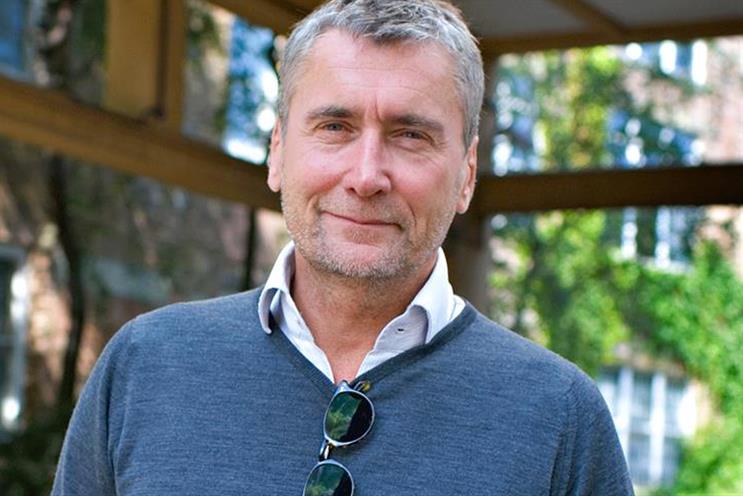If you’re a fan of awards shows (and let’s face it, what’s not to like?) you’re in luck. The season is in full swing. In the next few days senior swathes of the industry will decamp to the south of France for the annual industry love-in that is Cannes Lions.
Cannes and other shows are easy to satirise and criticize, but actually we perform a valuable service to our industry – celebrating, stimulating and enabling creative excellence, thereby creating more effective work and better outcomes. Yes a bit of cheating goes on and a few bandwagons are jumped on, but the overall direction of travel is good.
A lot of the projects we’re seeing are opportunistic at best, fraudulent at worst.
One such bandwagon is "creativity for good" and we in the advertising business are in danger of confusing ourselves about the purpose of purpose in marketing, communications and design. And to be honest, the awards shows have had a big part to play.
It’s got to a place where many creative people believe that awards juries won’t look at their work unless it’s for a brand that purports to put purpose beyond profit. This would be fine – a big advance even – if all the work in question was real – for real clients trying to sell things to real consumers. Unfortunately that’s not the case. A lot of the projects we’re seeing are opportunistic at best, fraudulent at worst.
This movement is not about hijacking issues for dubious ends or playing with people’s hopes and fears. It’s about business behaving ethically and transparently and doing the right thing in the right way, with the interests of all stakeholders – and the planet – at the heart of the enterprise.
Let’s recap. Back in the day, probably at around the time the internet started to play an important practical part in people’s everyday lives, consumers started to notice that some of the people making their favourite brands were not playing by the rules. Or rather, they were, but the rules were written to allow exploitation, pollution and human degradation. And they began to make their feelings known, at first gently, then increasingly forcefully.
The idea that the "only responsibility of business is to make a profit" began to be questioned, particularly by younger, more eco-conscious consumers.
And this was happening at a time when environmentalists and economists began to agree on one thing – the current rates of increase in consumption would, if allowed to progress unchecked, quite quickly consume the planet and everything on it. The fight to keep the world from heating up by more that +2 degrees by 2050 began.
Unfortunately governments and supra-national organisations like the UN proved to be pretty inept at taking the necessary action to combat climate change – too much inertia, too many agendas, too many vested interests.
Businesses began to realise that they too would have to take a hand – perhaps a leading hand. If only because, with large parts of the world under water, there would be fewer people to sell their products to. Even greenwash is a small step in the right direction.
The idea that the "only responsibility of business is to make a profit" began to be questioned, particularly by younger, more eco-conscious consumers.
Then a funny thing happened. A number of big corporations started to see that doing the right thing was indeed the right thing to do – for the consumer, for the planet – but also for the bottom line, for boards of directors, for shareholders.
Giving their brands, products and services a purpose elevated them above the competition and made people feel good about buying them. It was growing proof that when the commercial and sustainability agendas align and become one and the same you can indeed, in the words of 19th century visionary Lord Leverhulme, "do well by doing good".
Then it all got slightly out of hand. Everything had a to have a purpose – candy bars, building suppliers, brewers, car manufacturers, sneakers. And when it was real, and done well, and didn’t seek to misappropriate society’s hopes and fears to sell, for instance, fizzy drinks, it worked well. But where it was false and concocted to win awards, it undermined the good stuff, made consumers wary, and discredited our business in the eyes of the client community.
We find ourselves in a strange place – perhaps at a crossroads. The future of the planet is still largely dependent on business seeking to grow sustainably (if indeed growth is the answer), and agencies are still obliged – morally and otherwise – to help their clients achieve this. But we have to do it authentically and honestly, something our unique skills can help facilitate.
Unfortunately, those same skills can also be turned to less honourable work. An app that purports to help distressed refugees but which is actually a useless mock-up anyone? You get my point.
The awards industry feeds off the adverting and design business, which in turn depends on clients spending money. We are something of a bellweather. But sometimes we can also lead.
A number of people have been saying for a number of years that in the good old days, all of 20 years ago, the work that won was work that you had seen, bought, enjoyed. Now, not so much. So getting back to a place where awards shows stimulate and celebrate real work that has had a real impact in the real world? Now that’s got to be a good thing.
D&AD Impact is open for entries through 14 July. The awards ceremony is on 26 September 2017 in New York City. Find out more at .
Tim Lindsay is the chief executive of D&AD, and is also non-executive chairman of The Gate Worldwide.


